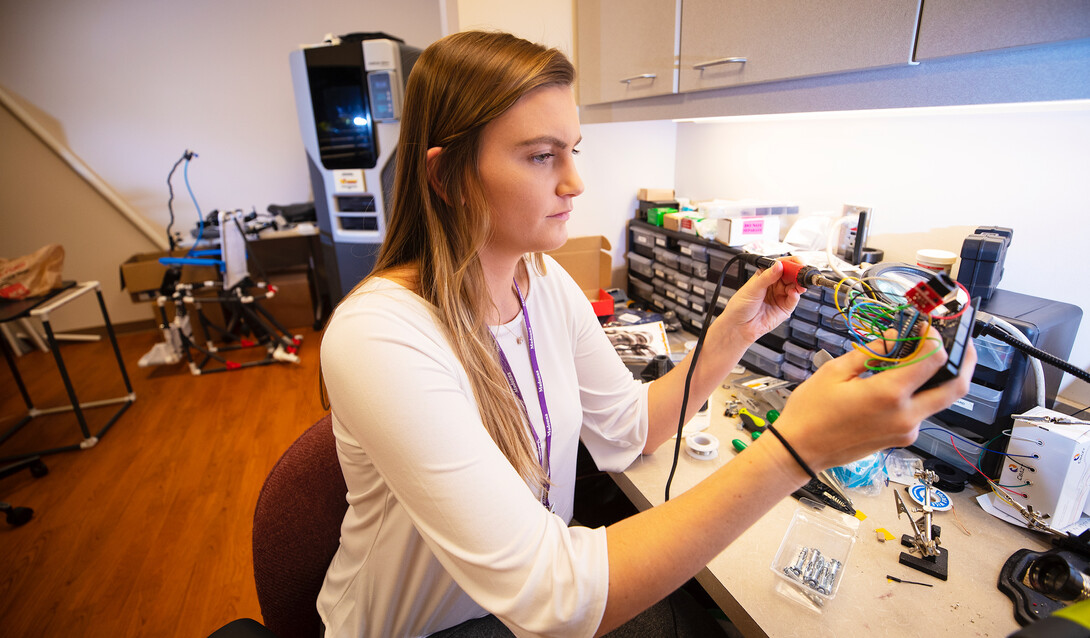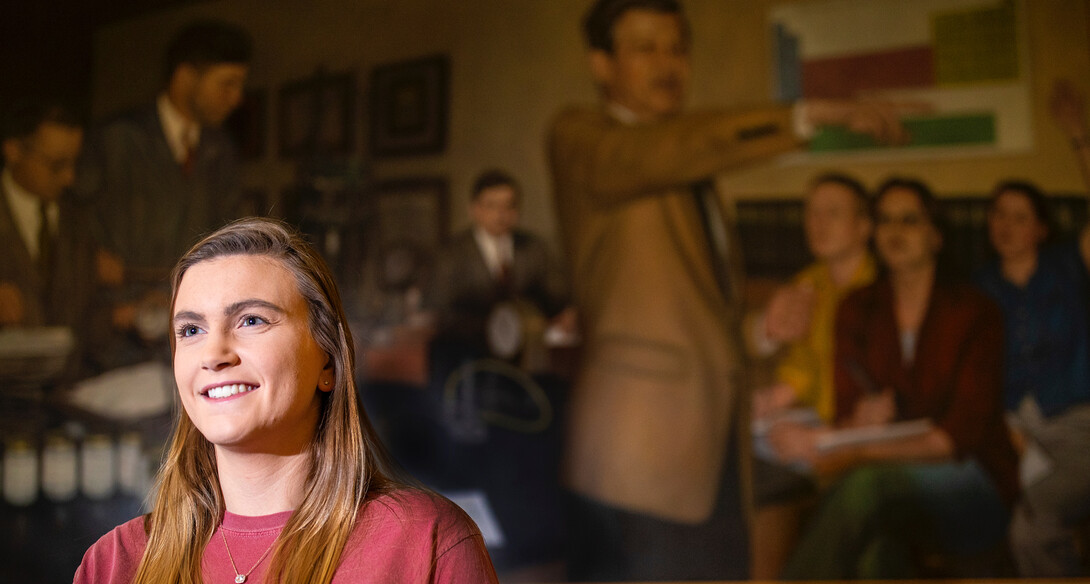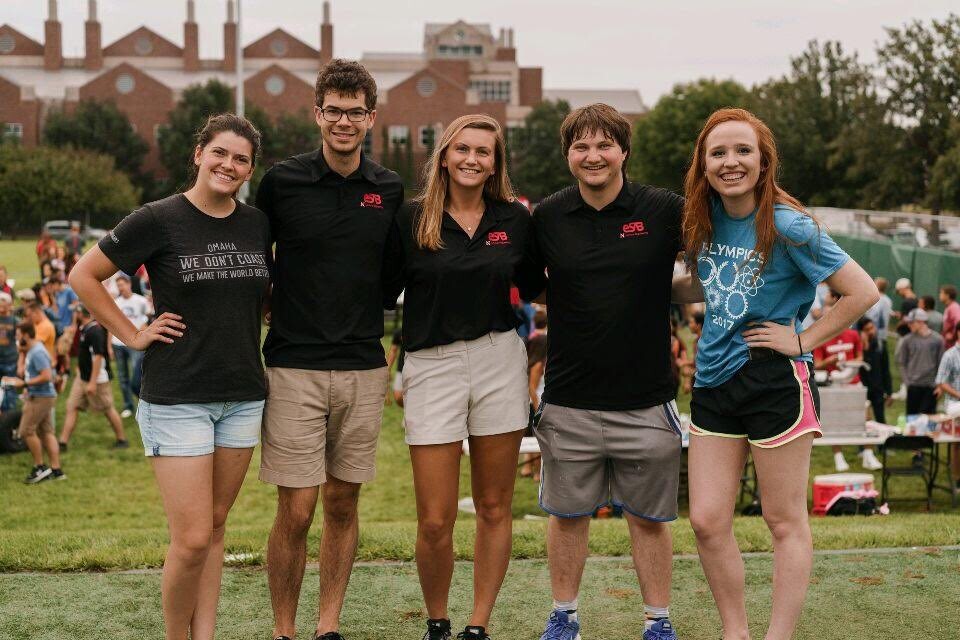
Look at the wiring behind Alex Hruby’s success, and you’ll find one common theme — she doesn’t shy away from a challenge.
Now a senior biomedical engineering major at the University of Nebraska-Lincoln, Hruby knew from the beginning that her career path presented more roadblocks than most. She wasn’t deterred.
“The fact that there aren’t many women in engineering was a big motivator for me,” Hruby said. “I like being a person who stands out and goes against the crowd. I think a lot of women in my position feel that they need to excel to prove themselves, and that’s something that I’ve definitely experienced in my time here.”
After four years in the College of Engineering, Hruby has not only taken this challenge in stride, but forged a career path that combines her love for technology and helping others.
“I always thought I was going to go to medical school and be a physician or surgeon, but when I visited here, someone said that engineers can directly help people and have a wider effect,” Hruby said. “[I became interested in engineering] because I could have a really big impact on the human body while still integrating design and patient care.”

Through Nebraska’s UCARE program, Hruby works as a volunteer research assistant in the Institute for Rehabilitation Science and Engineering at Madonna Rehabilitation Hospital’s Lincoln campus. There, she uses assisted technology to develop new devices — like adaptive Xbox controllers — for unique patient situations.
“A lot of people who are admitted to Madonna have traumatic brain injuries, so they are limited in functionality and fine motor control,” Hruby said. “My main project helps patients who have limited speech and communication abilities express their feelings, emotions and needs. It’s a great opportunity to learn about the different issues that go along with their conditions and then use my design experience to help them.”
Outside of her passion for research, Hruby has set herself apart as a leader within the college, serving as president of Engineering Student Advisory Board and vice president of Biomedical Engineering Society.
In these roles, she is responsible for building a more connected community of engineering students and providing a broader vision for the college’s future.

“As cliché as it sounds, get involved outside of the classroom,” Hruby said. “An employer or graduate school admissions officer won’t want to know what you did in your classes, because everyone did that. They’ll want to know what you did to set yourself apart and what unique experiences you gained.”
After leaving Nebraska in May, Hruby plans to attend graduate school, pursue a career in sports medicine and eventually return to academia — bringing with her the same pioneering attitude that she began with.
“[It’s important to understand] failure, learning how to fail well and that you’re always going to hit roadblocks and something’s always going to go wrong,” Hruby said. “It’s not necessarily a reflection of you. The better reflection of you is how you handle it.”







